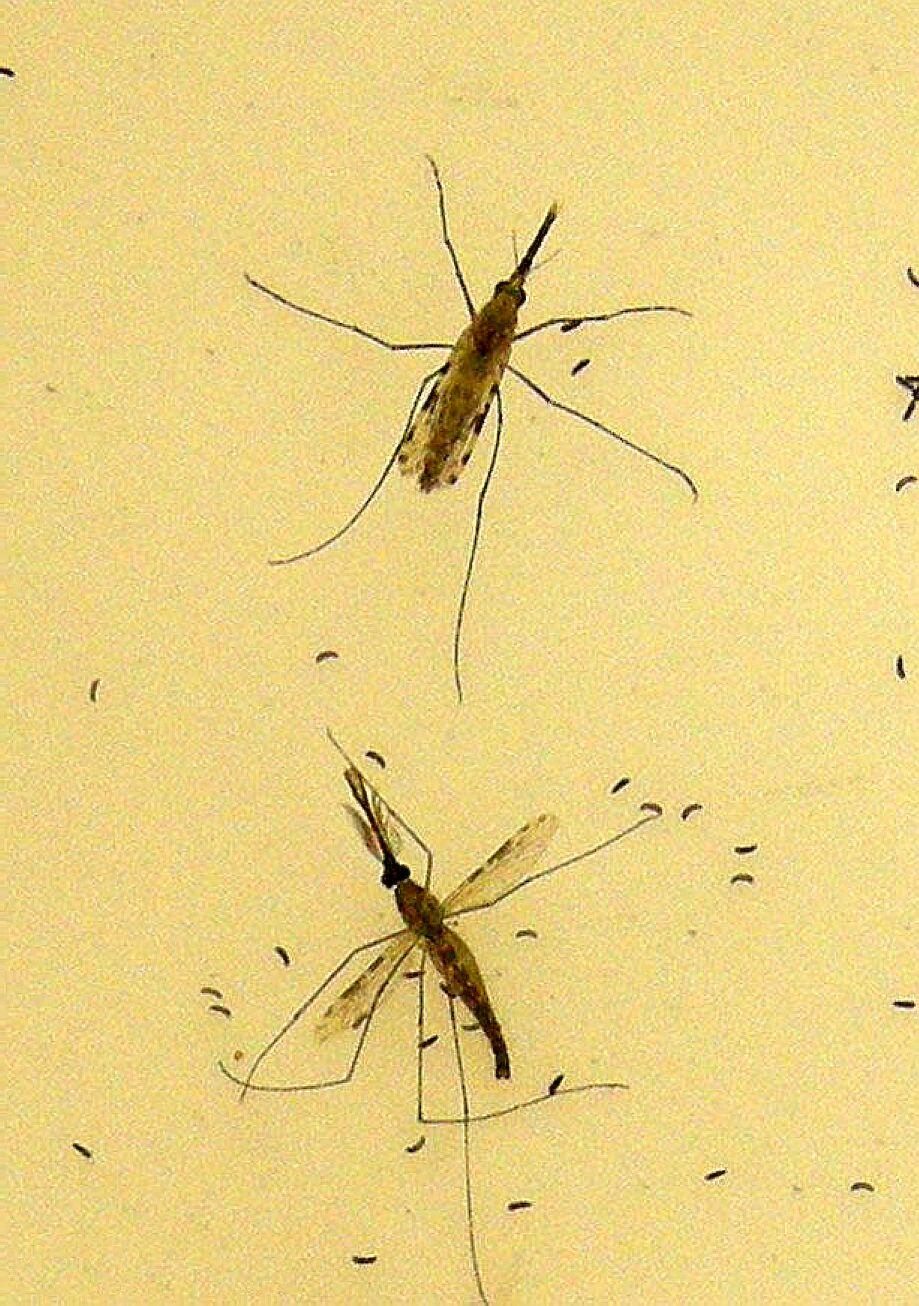
Researchers from LSTM have shown that the mechanism by which the main vector of malaria in Africa, the Anopheles gambiae mosquito, becomes resistant to one class of insecticide, makes them more susceptible to others.
In a paper published last week in the journal BMC Genomics, the team, led by Dr Victoria Ingham, have shown that the transcription factor Maf-S, is the driving force that leads to an increase in the production of proteins that detoxify insecticides from the pyrethroid class, meaning that they stop being as effective at killing the mosquito. However, the team have discovered negative cross resistance due to the same transcription pathway, meaning that as the mosquito becomes more resistant to one insecticide class, pyrethroids, it becomes more susceptible to another, organophosphates.
Malaria intervention programmes are responsible for a huge reduction in malaria cases and deaths across Sub-Saharan Africa, with long lasting insecticide treated nets and indoor residual spraying accounting for 81% of that reduction since 2000. Despite the reliance on these interventions, only four classes of public health insecticides are licensed for use in indoor residual spraying and only one, the pyrethroids, for insecticide treated nets. Senior author on the paper, LSTM’s Professor Hilary Ranson said: “Insecticide treated nets are in about 79% of houses across sub-Saharan Africa, and this level of exposure is obviously impacting on resistance among mosquito populations with over 75% of countries monitoring the problem reporting pyrethroid resistance. Understanding the mechanisms by which resistance occurs has never been more important and yet, prior to this study, almost nothing was known about the processes controlling metabolic resistance to insecticides”
The results of the lab trials also highlighted an important phenomenon seen previously in the field, which is that high levels of resistance to pyrethroids seems to lead to increased susceptibility to organophosphates, a particularly important find given the current pressure on public health insecticides. “Using organophosphate insecticides in indoor residual spraying may have a high impact on vector populations and therefore malaria control.” Continued Professor Ranson. “The paper demonstrates that transcriptional control is not only important in insecticides resistance, but that exploring the genetic reasons for that resistance can lead to important answers with operational impact.”